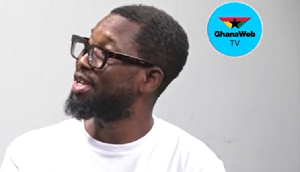The Coordinator for Risk Communications at the Ghana Health Service, Joel Abekuliya, has elucidated the significance of the Cranky Uncle Vaccine App, launched by the GHS on April 24, 2024.
A prevalent scepticism exists among Ghanaians regarding vaccines, particularly concerning potential harm to the body. To combat this scepticism and the myths associated with it, the app was introduced to mitigate the spread of misinformation and disinformation about vaccines.
In a conversation with Daniel Oduro, the host of The Lowdown, Joel Abekuliya provided further insights into the Cranky Uncle Vaccine App and discussed the reasons for its adoption by Ghanaians.
"This is an app that UNICEF supported countries to develop. The idea was to see how we could create a sustainable way of dealing with the misinformation and disinformation related to vaccines. The app has been deployed in Kenya, Tanzania, and Rwanda, as well as Ghana. In this game, everything that is inside is research-based."
Abekuliya described the characters within the app and their roles in fulfilling the app's intended purpose.
"It has two characters: the nurse and the cranky uncle. The cranky uncle is perceived to be our everyday know-it-all uncle. We have our nurse who also will be giving us the right information as well as explaining the importance of vaccines. Let me mention that we are also gathering some data, which includes how many people are coming on board, the age groups, and other details, so this is also research," he said.
To evaluate the app's precision, Abekuliya noted that it underwent testing with select individuals before its official release, and the feedback was positive, affirming the app's reliability.
"There has been a study that has been done after it was deployed. Among 1,000 participants, including those from Ghana. After that, they conducted another study and realized that in terms of people’s perceptions of vaccines, there had actually been a change, so it actually works," he added.
Watch the interview below:
ED/ADG
Health News of Thursday, 9 May 2024
Source: www.ghanaweb.com
Cranky Uncle Vaccine App: What you need to know about the app and its importance
Business
















